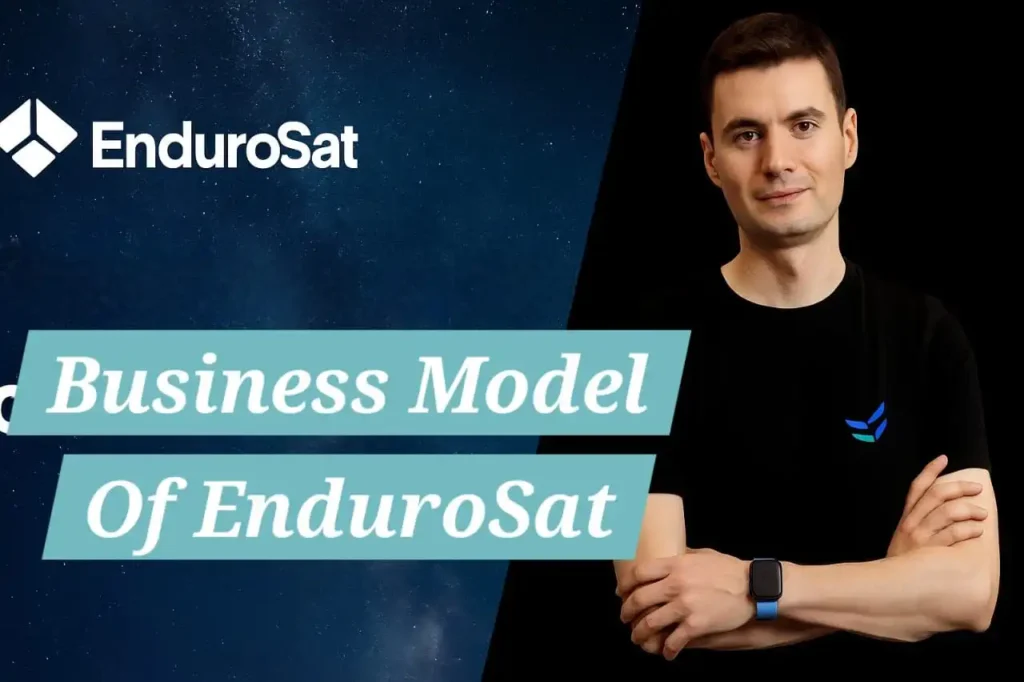| Category | Details |
|---|---|
| How EnduroSat Started | Founded in 2015 by Raycho Raychev in Sofia, Bulgaria, starting from an attic apartment. The company began with prototype satellite modules in 2016 and launched its first NanoSat with an online satellite store in 2017. Before founding EnduroSat, Raychev established Space Challenges Academy in 2010, Europe’s largest space education platform, to develop local talent and gather a critical mass of graduates who would later join EnduroSat. |
| Present Condition | EnduroSat currently serves 350+ global customers with a team of 230+ professionals across 6 international locations. The company generates approximately $18 million in annual revenue (2025 estimate). Recently secured $104 million in funding from Google Ventures, Lux Capital, Riot Ventures, European Innovation Council Fund, and Shrug Capital, alongside opening a 188,340 sq ft Space Center in Sofia. The company has delivered 120+ satellites for leading organizations including NASA and ESA. |
| Future of Company & Industry | The global small satellite market is projected to grow from $184.55 billion in 2025 to $278.87 billion by 2030 at 8.61% CAGR. EnduroSat aims to manufacture two ESPA-class satellites daily, positioning itself to capture significant market share in constellation deployments for Earth observation, communications, and defense applications. The company’s vertically integrated model and fixed-cost service approach align with industry trends toward rapid deployment and affordable access to space infrastructure. |
| Opportunities for Young Entrepreneurs | The space-as-a-service model eliminates traditional barriers—EnduroSat handles the entire satellite supply chain from design through mission operations, allowing entrepreneurs to focus on applications rather than hardware complexities. Key opportunities include: satellite data analytics for agriculture/climate monitoring, IoT connectivity solutions for remote areas, specialized constellation services for emerging markets, space-based AI and edge computing applications, and educational/research missions leveraging affordable smallsat platforms. The democratization of space access enables startups with innovative use cases to deploy orbital infrastructure at predictable costs. |
| Market Share of EnduroSat | EnduroSat ranks 7th among 207 active competitors in the smallsat manufacturing sector, standing 3rd in total funding among competitors. While precise market share is undisclosed, the company operates in a fragmented market with competitors including Terran Orbital, NanoSpace, ReOrbit, Planet Labs, and Rocket Lab. EnduroSat’s European base and vertically integrated manufacturing give it competitive positioning for EU-based constellation operators and government contracts seeking alternatives to American or Chinese providers. |
| MOAT (Competitive Advantage) | Vertical Integration: Complete in-house control from component fabrication through orbital qualification testing in the 188,340 sq ft facility, including RF labs, clean rooms, and space qualification systems. Production Velocity: Capability to manufacture two 200-500kg satellites daily with cableless bus design enabling assembly in hours rather than weeks. Fixed-Cost Model: Transparent, predictable pricing eliminates traditional aerospace uncertainty around cost overruns. European Strategic Position: Sofia location provides cost-efficient skilled labor while accessing EU government contracts and regulatory frameworks. Proven Heritage: 120+ satellites delivered for NASA, ESA, and 350+ customers validates reliability and performance. |
| How EnduroSat Makes Money | Revenue streams include: (1) Sales of high-performance CubeSat modules and satellite platforms ranging from 1U to 16U configurations and ESPA-class satellites up to 500kg; (2) Constellation-as-a-Service offerings covering complete mission lifecycle from design, manufacturing, launch coordination, to ongoing orbital operations; (3) Individual satellite subsystem sales including avionics, communication systems, power modules, solar panels, and structural components; (4) Space Course educational programs generating supplementary revenue while developing future workforce. The business model emphasizes fixed-price contracts and turnkey solutions, shifting from traditional cost-plus aerospace contracting to predictable, service-oriented pricing that enables broader customer adoption. |

My Name is Adarsh and I am Empowering startups with high-quality content at Startups Union and bridging the gap between brand stories.
